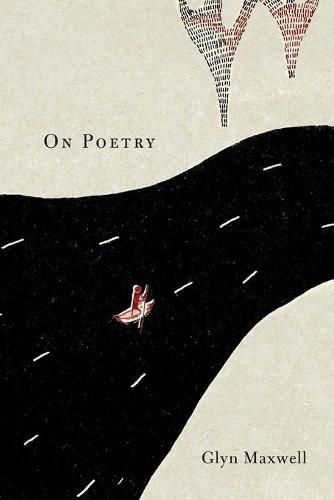Readings Newsletter
Become a Readings Member to make your shopping experience even easier.
Sign in or sign up for free!
You’re not far away from qualifying for FREE standard shipping within Australia
You’ve qualified for FREE standard shipping within Australia
The cart is loading…






This is a book for anyone, Glyn Maxwell declares of On Poetry. A guide to the writing of poetry and a defense of the art, it will be especially prized by writers and readers who wish to understand why and how poetic technique matters. When Maxwell states, With rhyme what matters is the distance between rhymes or the line-break is punctuation, he compresses into simple, memorable phrases a great deal of practical wisdom.
In seven chapters whose weird, gnomic titles announce the singularity of the book- White,
Black,
Form,
Pulse,
Chime,
Space, and Time -the poet explores his belief that the greatest verse arises from a harmony of mind and body, and that poetic forms originate in human necessities: breath, heartbeat, footstep, posture. The sound of form in poetry descended from song, molded by breath, is the sound of that creature yearning to leave a mark. The meter says tick-tock. The rhyme says remember. The whiteness says alone, Maxwell writes. To illustrate his argument, he draws upon personal touchstones such as Emily Dickinson and Robert Frost. An experienced teacher, Maxwell also takes us inside the world of the creative writing class, where we learn from the experiences of four aspiring poets.
You master form you master time, Maxwell says. In this guide to the most ancient and sublime of the realms of literature, Maxwell shares his mastery with us.
$9.00 standard shipping within Australia
FREE standard shipping within Australia for orders over $100.00
Express & International shipping calculated at checkout
This is a book for anyone, Glyn Maxwell declares of On Poetry. A guide to the writing of poetry and a defense of the art, it will be especially prized by writers and readers who wish to understand why and how poetic technique matters. When Maxwell states, With rhyme what matters is the distance between rhymes or the line-break is punctuation, he compresses into simple, memorable phrases a great deal of practical wisdom.
In seven chapters whose weird, gnomic titles announce the singularity of the book- White,
Black,
Form,
Pulse,
Chime,
Space, and Time -the poet explores his belief that the greatest verse arises from a harmony of mind and body, and that poetic forms originate in human necessities: breath, heartbeat, footstep, posture. The sound of form in poetry descended from song, molded by breath, is the sound of that creature yearning to leave a mark. The meter says tick-tock. The rhyme says remember. The whiteness says alone, Maxwell writes. To illustrate his argument, he draws upon personal touchstones such as Emily Dickinson and Robert Frost. An experienced teacher, Maxwell also takes us inside the world of the creative writing class, where we learn from the experiences of four aspiring poets.
You master form you master time, Maxwell says. In this guide to the most ancient and sublime of the realms of literature, Maxwell shares his mastery with us.